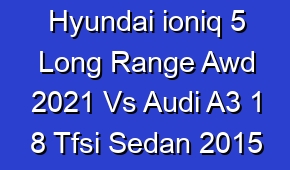Car Cameras

Car cameras are devices installed in vehicles to capture video footage of the road ahead and inside the vehicle. They serve as a reliable witness in case of accidents or disputes. These cameras provide evidence, promote safer driving, and offer peace of mind to car owners.
Car cameras have become an essential tool for vehicle owners. These innovative devices provide surveillance and security for both personal and commercial automobiles. With advanced technology and high-resolution capabilities, car cameras capture crystal-clear footage of road accidents and unexpected events. They offer peace of mind and insurance against fraudulent claims. Whether you need to monitor your teenager’s driving or document any potential incidents, car cameras provide unbiased evidence. These compact and easy-to-install devices record everything that happens on the road, ensuring protection and safety for you and your loved ones. Don’t take risks when it comes to your vehicle, invest in a reliable car camera today.
| Car cameras help improve driving safety by providing video evidence of accidents. |
| Car cameras can capture high-quality footage of road trips and scenic drives. |
| Some car cameras have built-in GPS to track speed and location data. |
| Car cameras with night vision capabilities ensure clear footage during low-light conditions. |
| Wide-angle lenses on car cameras provide a broader view of the surroundings. |
- Car cameras can be easily installed on the windshield or dashboard.
- Many car cameras have loop recording to overwrite older footage and save storage space.
- Car cameras with motion detection can start recording when movement is detected.
- Some car cameras offer Wi-Fi connectivity for easy transfer of footage to mobile devices.
- Car cameras provide peace of mind for insurance claims and evidence in legal disputes.
What are car cameras and how do they work?
Car cameras, also known as dash cams, are devices that are mounted on the windshield or dashboard of a vehicle to record video footage while driving. They are designed to capture the view of the road ahead and can provide evidence in case of accidents or other incidents. Car cameras typically have a wide-angle lens that captures a broad field of view. They use loop recording to continuously record video, overwriting older footage to ensure continuous operation. Some car cameras also have built-in GPS and G-sensors to track location and detect impacts, respectively.
Are car cameras legal to use?
The legality of using car cameras varies depending on the jurisdiction. In many countries, it is legal to use car cameras for personal use, as long as they do not obstruct the driver’s view. However, there may be restrictions on recording audio or capturing footage of private property without consent. It is important to familiarize yourself with the laws and regulations regarding car cameras in your specific location before using one.
What are the benefits of using a car camera?
Using a car camera can provide several benefits. Firstly, it can serve as evidence in case of accidents, helping to determine fault and settle insurance claims. Car cameras can also deter potential thieves and vandals, as their presence is often enough to discourage such activities. Additionally, car cameras can capture memorable road trips or scenic drives, allowing you to relive those moments later. Some advanced car cameras even offer features like lane departure warnings and forward collision alerts to enhance safety.
How should I install a car camera?
The installation process for a car camera may vary depending on the model and type of camera. Generally, car cameras are mounted on the windshield or dashboard using suction cups or adhesive mounts. It is important to position the camera in a way that does not obstruct the driver’s view and allows for optimal recording. Follow the manufacturer’s instructions for installation and make sure to connect any necessary power cables or adapters. It is also recommended to adjust the camera’s settings, such as resolution and loop recording duration, according to your preferences.
What features should I look for in a car camera?
When choosing a car camera, there are several features to consider. Look for a camera with high video resolution, such as 1080p or higher, to ensure clear and detailed footage. Wide-angle lenses, preferably 120 degrees or more, can capture a broader view of the road. GPS functionality can be useful for tracking location and speed, while G-sensors can automatically save footage in case of sudden movements or impacts. Other features to consider include night vision, parking mode, and Wi-Fi connectivity for easy access to footage.
Can car cameras record in the dark?
Yes, many car cameras are equipped with night vision capabilities, allowing them to record in low-light or dark conditions. These cameras use infrared technology to capture clear footage even when visibility is limited. Night vision can be especially useful for capturing incidents or accidents that occur during nighttime driving. When choosing a car camera, look for models specifically designed for low-light recording or ones that mention night vision in their specifications.
How long can a car camera record for?
The recording duration of a car camera depends on factors such as the storage capacity of the memory card and the resolution of the video being recorded. Most car cameras support loop recording, which means that once the storage is full, the camera will overwrite the oldest footage to make space for new recordings. The recording time can range from a few hours to several days, depending on the memory card capacity and recording settings. It is advisable to use high-capacity memory cards to ensure longer recording durations.
Can car cameras be used for insurance purposes?
Yes, car cameras can be used as valuable evidence for insurance purposes. In case of accidents or disputes, the footage recorded by a car camera can provide a clear account of what happened, helping to determine fault and facilitate the claims process. It is important to inform your insurance company about the presence of a car camera and to save any relevant footage in case it is needed for a claim. Some insurance providers may even offer discounts for drivers who use car cameras.
Do car cameras drain the car battery?
Car cameras are designed to operate using the vehicle’s battery, but they typically have low power consumption to avoid draining the battery. Most car cameras have built-in features to automatically turn off or enter a low-power mode when the vehicle is not in use. However, it is still important to choose a high-quality car camera and follow the manufacturer’s recommendations for installation and usage to minimize any potential impact on the car battery’s performance.
Can car cameras be connected to a smartphone?
Yes, many car cameras offer smartphone connectivity either through Wi-Fi or dedicated apps. This allows users to view and download footage directly on their smartphones without the need for a computer or additional cables. Smartphone connectivity also enables real-time streaming or remote control of the car camera’s settings. When choosing a car camera, check if it offers smartphone connectivity features and ensure compatibility with your smartphone’s operating system.
What should I do if my car camera stops working?
If your car camera stops working, there are a few troubleshooting steps you can take. First, check if the power cable is securely connected to both the camera and the power source. Ensure that the memory card is properly inserted and not full. Try restarting the camera or performing a factory reset if necessary. If none of these steps resolve the issue, contact the manufacturer’s customer support for further assistance or consider seeking professional help.
Are there any laws regarding the use of car cameras in public areas?
The use of car cameras in public areas is generally allowed, but there may be privacy laws or restrictions on recording certain areas or individuals without consent. It is important to be mindful of these laws and respect the privacy of others. Avoid using car cameras in private property or places where recording is explicitly prohibited. Familiarize yourself with the legal regulations in your jurisdiction to ensure compliance while using car cameras.
What is the video quality of car cameras?
Car cameras can record video in various resolutions, ranging from standard definition to high definition. The video quality is typically measured in pixels, such as 720p, 1080p, or even 4K. Higher resolution cameras offer sharper and more detailed footage, but they may also require larger storage capacity. When choosing a car camera, consider the desired video quality based on your specific needs and preferences.
Can car cameras be used as surveillance devices when the vehicle is parked?
Some car cameras offer a parking mode feature, which allows them to continue recording even when the vehicle is parked and the engine is off. In this mode, the car camera uses motion detection or impact sensors to automatically start recording if any movement or impact is detected near the vehicle. This can be useful for surveillance purposes or capturing incidents that occur while the car is unattended. However, it is important to check the specific capabilities of the car camera and whether it requires additional power sources for extended parking mode usage.
Are car cameras easy to remove or transfer to another vehicle?
Car cameras are typically designed to be easily removable and transferable to another vehicle. Most car cameras use suction cups or adhesive mounts for installation, allowing them to be quickly attached or detached. However, it is important to ensure that the chosen mounting method is secure and does not obstruct the driver’s view. Some car cameras may also offer additional mounting accessories or alternative installation options for added flexibility and convenience.
Can car cameras be used at night with headlights or streetlights?
Yes, car cameras can be used at night even with the presence of headlights or streetlights. The cameras are designed to adjust to different lighting conditions and capture clear footage regardless of the light sources. However, it is important to note that extreme glare or bright lights directly in front of the camera may affect the quality of the recorded footage. It is advisable to position the camera in a way that minimizes any potential glare or reflections from lights.
What is the cost range of car cameras?
The cost of car cameras can vary depending on the brand, features, and video quality. Basic car cameras can start from around $50, while more advanced models with additional features can range from $100 to $300 or more. High-end car cameras with advanced resolution and multiple functionalities may be priced higher. Consider your budget and the desired features when choosing a car camera, balancing affordability with the required capabilities.
How can I access the footage recorded by my car camera?
Accessing the footage recorded by a car camera can vary depending on the specific model and its connectivity options. Some car cameras have built-in screens that allow direct playback and viewing of recorded footage. Others may require connecting the camera to a computer or removing the memory card to access the files. Car cameras with smartphone connectivity enable easy access to the footage through dedicated apps or Wi-Fi transfer. Check the user manual or manufacturer’s instructions for the recommended method to access the recorded footage.





















